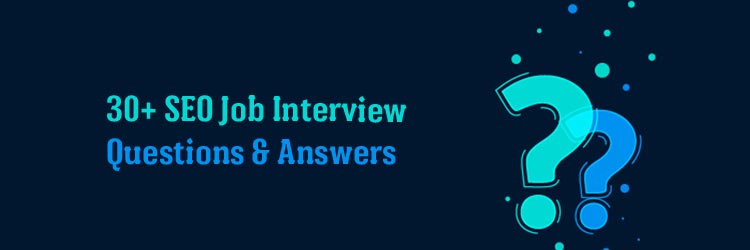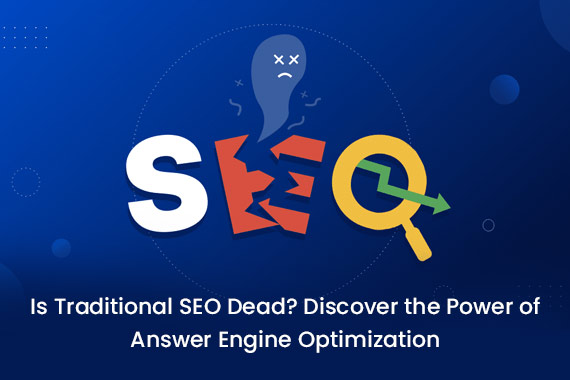30+ SEO Job Interview Questions & Answers

The success of a job interview is determined by how well you prepare for it. Preparing for an interview entails not only researching for the job but also deciding how to respond to the questions posed. In this blog, We’ve compiled a list of the top 30 SEO interview questions and answers to help you land your dream SEO job.
Table of Contents
- 1. SEO Careers in India
- 2. Here Are 30+ SEO Job Interview Questions & Answers:
- 2.1 What exactly are SEO services, and how does it work?
- 2.2 What does SEO stand for?
- 2.3 Why do you believe we require SEO services for business?
- 2.4 What exactly is local SEO?
- 2.5 What exactly is a search engine?
- 2.6 Can you think of any other search engines besides Google?
- 2.7 What is the abbreviation for WWW?
- 2.8 What are your thoughts on web crawling?
- 2.9 Have you heard of Googlebot?
- 2.10 What exactly is search engine submission?
- 2.11 What exactly is a SERP?
- 2.12 Could you please explain the distinction between organic and paid results?
- 2.13 What is the difference between on-page SEO and off-page SEO?
- 2.14 What exactly is a domain name?
- 2.15 What exactly is a URL?
- 2.16 What exactly are SEO-friendly URLs?
- 2.17 What exactly is web hosting?
- 2.18 What exactly is DA?
- 2.19 Explain the distinction between DA and PA.
- 2.20 What exactly is a TLD?
- 2.21 What exactly is a ccTLD?
- 2.22 What exactly is PBN?
- 2.23 What exactly are SEO tools?
- 2.24 Name a few well-known SEO tools.
- 2.25 What do you mean by SEO writing?
- 2.26 What are keywords?
- 2.27 What exactly is keyword difficulty?
- 2.28 What exactly is keyword proximity?
- 2.29 What exactly is keyword density?
- 2.30 What exactly are long-tail keywords?
- 2.31 Explain the bounce rate?
- 2.32 What exactly are header tags?
- 2.33 What exactly are internal links?
- 3. Final Thoughts
1. SEO Careers in India

Digital marketing has emerged as one of the most promising career paths in today’s world, with Seo Services India being the most in-demand skill in the field. If you are looking to land your dream job in a Seo Agency, here’s a quick run-through to save you time and effort before your interview in Seo Company India.
2. Here Are 30+ SEO Job Interview Questions & Answers:

2.1 What exactly are SEO services, and how does it work?
This is the first interview question you will be asked in an Seo Company India. SEO is increasing the quality and quantity of organic search traffic to a website. This is accomplished by increasing a website’s or web page’s visibility on a search engine without paying for it.
2.3 Why do you believe we require SEO services for business?
Marketing had undergone a paradigm shift; each year, something new was made available for people to use and explore on the Internet. As a result, the race to appear on the first page of search engines has become extremely competitive as online behaviour has increased. Therefore, a company must implement SEO to remain competitive in the online world.
2.4 What exactly is local SEO?
Local SEO is aimed at users and potential customers looking for a business’s products or services in their area. These primarily consist of location-based queries and results.
2.5 What exactly is a search engine?
A search engine is a software system that searches the internet for relevant information on a specific query entered by a user.
2.6 Can you think of any other search engines besides Google?
This is a popular SEO agency interview question. Here are a few examples:
- Bing
- Yahoo!
- DuckDuckGo
- Yandex
- YouTube
- Amazon
- Baidu
2.7 What is the abbreviation for WWW?
WWW is an abbreviation for the World Wide Web. It is a collection of websites that are stored on web servers that are linked to local computers.
2.8 What are your thoughts on web crawling?
Web crawling is the process by which a web crawler (spider bot/spider/crawler), also known as an internet bot, browses the World Wide Web to index it. It visits pages via hyperlinks and copies them for processing and indexing by the search engine, allowing Internet users to search more quickly and efficiently.
2.9 Have you heard of Googlebot?
Googlebot is the company’s web crawler. It searches for, crawls, and indexes web pages.
2.10 What exactly is search engine submission?
The process of submitting your website to search engines for it to be crawled and indexed is known as search engine submission. Even though search engines are intelligent enough to find and index your website, it is recommended that you proceed with the search engine submission because you will have the opportunity to submit some useful information about your website from your end. In addition, the search engines will alert you if potential errors exist on your site.
2.11 What exactly is a SERP?
SERP is an abbreviation for search engine results page. This is the page where users can see the results of their search engine queries.
2.12 Could you please explain the distinction between organic and paid results?
Organic and paid results are search results on SERPs that are displayed based on quality and relevance to the user query. Unfortunately, organic results do not pay to appear on SERPs. Therefore, it is extremely difficult to rank high organically, and SEO is required.
Paid results necessitate keyword bidding, and they are positioned above organic search results on SERPs based on the Max CPC (cost per click) and quality score. The higher your score, the less money you’ll have to pay.
2.13 What is the difference between on-page SEO and off-page SEO?
On-page SEO improves website performance by optimizing meta tags and descriptions, page titles, URL structure, keyword density, body tags, internal linking, images, and so on.
Off-page SEO activities include guest blogging, reverse guest blogging, press releases, social networking, and so on. These are done away from the website to promote and increase its visibility.
2.14 What exactly is a domain name?
A domain name is an address on the Internet from which Internet users can access your website, including web addresses, email addresses, and Internet Protocol addresses. It is essentially a link to the server that hosts your website.
2.15 What exactly is a URL?
URL is an abbreviation for Uniform Resource Locator. It is the complete address of a web page or a document on www.
2.16 What exactly are SEO-friendly URLs?
Both search engines and users easily understand SEO-friendly URLs. In addition, they will usually include keywords, and they will be mostly self-explanatory and future-proof, so they will not become obsolete over time.
2.17 What exactly is web hosting?
Web hosting is the internet’s equivalent of purchasing a property. Web hosting companies will give you space on their servers to build your website. For this hosting purpose, the server must be connected to the Internet.
2.18 What exactly is DA?
Another frequently asked interview question by a trusted Seo Company India. DA, or domain authority (a Moz metric), is a search engine ranking score that ranges from 0 to 100. The score predicts how well a website will rank on search engine results pages. The higher your DA, the better your chances of ranking higher.
2.19 Explain the distinction between DA and PA.
While DA (domain authority) describes your entire website’s authority, PA (page authority) describes the authority of a specific page based on quality backlinks, social sharing, and so on. The DA takes more time and effort than the PA, but it is more rewarding in the long run.
2.20 What exactly is a TLD?
The top-level domain (TLD) is the final extension of an Internet address, such as. com,.net,.org,.co.in, and so on.
2.21 What exactly is a ccTLD?
In SEO, a ccTLD, also known as a country code top-level domain, is a two-character domain extension reserved for a country. Here are some examples of ccTLDs: .it is for Italy, and.in is for India.
2.22 What exactly is PBN?
PBN, or private blog network, is a network of websites linked to a single website for SERP ranking purposes.
2.23 What exactly are SEO tools?
SEO tools evaluate the performance of web pages and provide recommendations for high SERP placement.
2.24 Name a few well-known SEO tools.
This SEO agency interview question will be used to assess your knowledge. So, here are a few well-known SEO tools:
- Google Search Console
- Google Analytics
- Moz
- Ahrefs
- Social Sprout
2.25 What do you mean by SEO writing?
SEO writing is the use of keywords and key phrases within the content of a website. This improves the website’s organic visibility on the SERP.
2.26 What are keywords?
Keywords are words or phrases that Internet users use to find relevant results to their searches. Identifying potential keywords and incorporating them into your website content can help you rank higher in search engines.
2.27 What exactly is keyword difficulty?
The keyword difficulty metric measures how difficult it is to rank a specific keyword based on its popularity.
2.28 What exactly is keyword proximity?
Keyword proximity refers to the distance or proximity between two keywords within a body of text on a web page. If the keywords in a phrase are close together, the phrase will carry more weight.
2.29 What exactly is keyword density?
The ratio or percentage of keywords used on a specific page is referred to as keyword density.
2.30 What exactly are long-tail keywords?
Keywords can be combined with other words to form a more specific phrase. These are known as long-tail keywords.
2.31 Explain the bounce rate?
The bounce rate is the percentage of visitors who leave the website without visiting other pages or engaging in any activity.
2.32 What exactly are header tags?
HTML header tags are used to highlight headings (h1 level) and subheadings (h2-h6 level) within web page content. These are also known as header tags or heading tags.
2.33 What exactly are internal links?
Internal links are hyperlinks that connect one web page within the same domain to another.
3. Final Thoughts

The above guide will help you to sail through any SEO interview, even if you are going for a leading Seo Company India like Matebiz Pvt Ltd. However, a top-notch Seo Agency like Matebiz Pvt Ltd. cannot skip these basic SEO questions to test a candidate’s knowledge about Seo Services, as they always emerge to be the leading name amongst the top providers of Seo Services.
40% of users will abandon a website that takes too long to load
Investing in the creation of a lightning-fast home page will pay off in terms of SEO. You’ll have happier visitors and a lower bounce rate.

Lame Xian
I have been using Matebiz for a month now and I’m very happy with them. They have the most affordable SEO packages that I have seen and you can check my website to see the difference. I’ve seen a lot of companies charge upwards per month and they don’t seem to do a better job. If you’re looking for great SEO without breaking the bank, then Matebiz is certainly worth it!
Recent Blogs
-
 Tips to Write Blogs that Attract Visitors and Increase Visibility
Tips to Write Blogs that Attract Visitors and Increase Visibility
-
 IT Outsourcing: What Are The Main Benefits for Your Company?
IT Outsourcing: What Are The Main Benefits for Your Company?
-
 Is Traditional SEO Dead? Discover the Power of Answer Engine Optimization
Is Traditional SEO Dead? Discover the Power of Answer Engine Optimization
-
 How a CRM Management System Can Improve HR Operations in 2025
How a CRM Management System Can Improve HR Operations in 2025
-
 Top 10 Services You Can Outsource to an IT Company India
Top 10 Services You Can Outsource to an IT Company India


